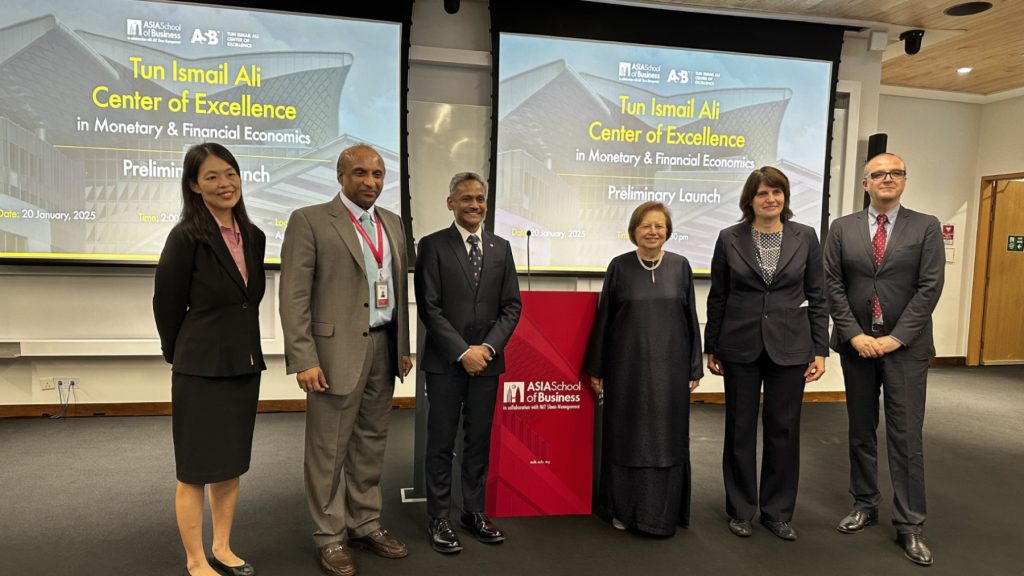KUALA LUMPUR: The Asia School of Business (ASB) convened the preliminary launch of the Tun Ismail Ali Center of Excellence in Monetary and Financial Economics (TIA CoE), a Bank Negara Malaysia (BNM) endowed research center. The event brought together leading central bankers, policymakers, and academics to celebrate the inauguration of the center at ASB.
Distinguished speakers included Tan Sri Dr Zeti Aziz, founding Chair and Co-Chair of the Board of Governors of ASB and former Governor of BNM, who highlighted that Bank Negara Malaysia had established the Tun Ismail Ali Chair at Universiti Malaya 25 years ago, in August 2000. “This Tun Ismail Ali Center of Excellence that is now being established at ASB is aimed at strengthening further the academic and professional knowledge in the area of financial and monetary economics in Malaysia and more broadly in the emerging world.” Meanwhile, BNM Governor Abdul Rasheed Ghaffour in his keynote address emphasized that the center is able to facilitate policymakers to effectively address the upcoming global macroeconomic challenges. He added that the center is also committed to providing training and development opportunities, inline with the center’s long-term objectives for capacity building. “By enhancing the skills and knowledge of our local talent, the center aims to elevate the overall capacity of our institutions”, he said.
In her keynote address, Professor Hélène Rey, Lord Bagri Professor of Economics at the London Business School spoke on the global financial cycles and their impact on emerging markets. Her pioneering research delved into the complex dynamics of financial intermediaries, implying how risk-taking varies across institutions and the challenges this poses for monetary policy. Professor Rey’s in-sights included the trade-offs that policymakers face in managing these dynamics, emphasizing the importance of balancing economic growth with financial stability in a global landscape.
In welcoming the TIA CoE to ASB, Professor Melati Nungsari, Deputy Dean of Research at the Asia School of Business, highlighted, “It is an exciting opportunity to have TIA CoE join ASB, contributing to the school’s ongoing commitment to delivering cutting-edge research, particularly in monetary and financial economics. This new center will help address key challenges, stimulate discussions, and serve as a hub for academic knowledge sharing and research.” She further noted that over the past decade, emerging markets now account for over 60% of global GDP growth, and employ approximately 85% of the global workforce, emphasizing the crucial role of innovative research in shaping the future of these economies.
“TIA CoE will play a role in supporting research and dialogue on contemporary monetary policy issues facing central banks,” said Professor Ho Sui-Jade, co-director of TIA CoE alongside Professor Ozer Karagedikli. “We are excited to collaborate with BNM and the broader academic community to foster research and knowledge exchange between local academics and other researchers in these areas globally.”
The Tun Ismail Ali Center is committed to advancing research in monetary and financial economics, enhancing the capacity of local higher education, and broadening public engagement. As a dedicated research hub for central banking issues in emerging markets, the center will host central bankers, scholars, and researchers to pursue research that support the center’s objectives. TIA CoE will also facilitate academic knowledge sharing through conferences, seminars, and other research events, while providing training and advisory services to central banks and relevant organizations to further its mission. In the lead up to the TIA CoE’s official launch later this year, the center will establish a grant application process for researchers interested in conducting research aligned with the center’s goals.
Originally published by The Exchange Asia.





